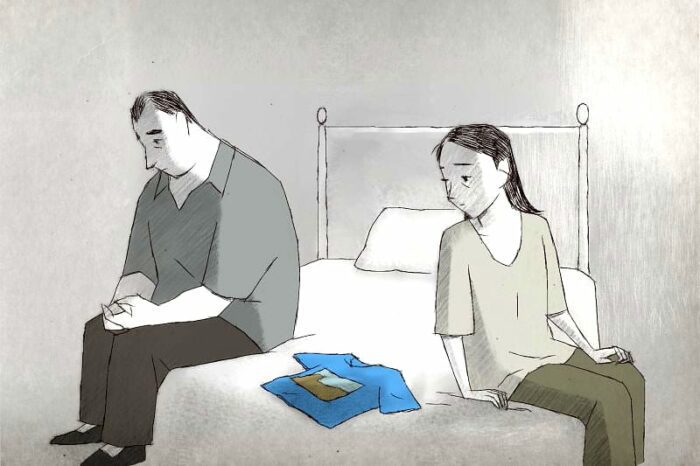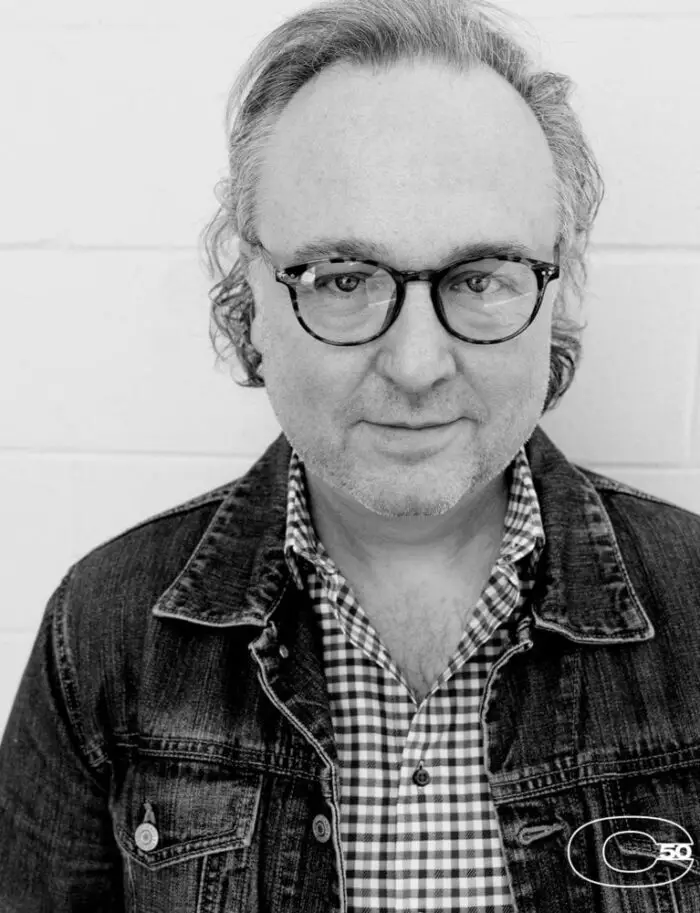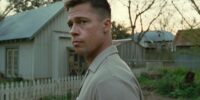For over 25 years, Peter Ettinger has exhibited his talents on both animated and live action feature films ranging from The Horse Whisperer, the first Fast and Furious movie, The Bourne Identity, and his own feature films Lonely Street, and Smallfoot. Most recently Peter edited the Netflix animated short film If Anything Happens I Love You, written and directed by Will McCormack & Michael Govier, and executive produced by Laura Dern and animation veteran Maryann Garger.
If Anything Happens I Love You is a powerful examination of loss and grief as it relates to the difficult subject matter of school shootings. Through nuanced animation and its ability to communicate humanity through images and sounds rather than dialogue, Ettinger’s work has also been recognized with an Annie Award nomination for Outstanding Achievement for Editing in a Television/Media Production.
This little film has gone on to become the most-streamed short in 14 countries and ranks among Netflix’s top ten watched titles. On TikTok the hashtag #ifanythinghappensiloveyou now has over 31 million views and is prompting conversations regarding the issue of gun violence all over. Garger and Dern also worked closely with the nonprofit Everytown for Gun Safety to create this powerful statement on gun violence in schools.
Ettinger spoke to me five days after his film had won the Oscar for Best Animated Short Film.
Peter Ettinger: It’s been a bit of a whirlwind week but in the good way. I’m extremely humbled and proud. As much as you work on a movie, you become a fan and you want what’s best for it. This one in particular, has been received so amazingly in the spirit which it was intended. And the response has been great from friends, family and strangers and people like yourself, it’s just been tremendous.
Jason: I had it in my Oscar pool as to win so I was quite glad when it did. How did you come to work on on this project and what inspired you to be a part of it?
Peter Ettinger: In early 2019, the producer, Maryann Garger, sent me a message asking if I’d be interested in cutting a short. She said I’ve got these two directors Michael Govier and Will McCormack who have this great idea for a traditional 2D animated short which was a meditation on grief. I met with them and they showed me some of the rough boards they had done and immediately I saw their passion for it and the emotional impact this would have. So the material and the people were the main reasons why I got involved.
Jason: Were you looking for something intimate and quiet giving your your background working on big, loud pictures or was it by circumstance?
Peter Ettinger: It was just circumstance, I had finished working on Smallfoot and I was taking some time off before my next movie so it was perfect timing. It was an opportunity to explore a more intimate, quieter, emotional driven piece of art rather than a big commercial motion picture. There was also the refreshing nature of it not having any dialogue, where music and sound effects were driving it. The directors had some ideas so we collaborated and then I filled out the temp sound effects. We ended up having an animatic screening of the film to try to get investors involved which Gary Gilbert Films did. So we were able to go from the animatic into the animation stage pretty seamlessly.
Jason: What was the collaborative process like between writers, animators, and even the composer?
Peter Ettinger: This was pre-COVID so we were all working from home anyway. I got my laptop and they would send me files which I’d download and cut. Then we’d meet once a week and I’d show them what I’d done. For the most part there was a lot of freedom for me to create with the timing and the pace of things. They had their own ideas of tone and their sensibility which was ultimately what I was serving. It was a very easy collaboration because I got what they were going for and was able to create that for them. One of the moments which did stick out for me is the moment when the screen cuts to black and the question was ‘how long do we hold in black?’ And rightly they wanted to push it and stay in black until it’s almost uncomfortable. And ultimately it’s very successful in the horror in that moment.

Jason: Oh, absolutely. That with the combination of the gunshot sound effects, I think that’s the point when people just gasp and then their insides have turned.
Peter Ettinger: We were lucky enough to have seen this a couple of times with an audience and your relationship with the film changes when you’re in a dark room with other people because you feel the tension and you hear those gasps. You feel the tears running down your own face. It’s a shame this couldn’t have been experienced in theaters with a group of people but the impact has not been minimized even with people watching from home. Maybe in a way COVID helped, what with people at home looking for things to watch and needing a catharsis because there’s been a lot of grief in a lot of different ways over the last year and a half. Certain friends of mine have reached out and said this has been a tool for them to go through their own grieving process. And I know a therapist who is recommending it to their patients to watch. So where this short goes, I don’t feel like the Oscar was the end of the journey, It’s only beginning.
Jason: You might have just touched on this but have you heard from anyone who’s personally experienced or has had personal experience with this topic and what has the response been from them?
Peter Ettinger: I don’t have any personal knowledge of anybody who has died from gun violence. Only through the film and the organization Everytown for Gun Safety that came on pretty early. They want to use this going forward. Grief isn’t just one emotion. Grief is many emotions. I did lose four people through the course of making the movie, not COVID related, they’re all different circumstances and I felt a different grief for each individual. So there’s never one emotion with any of this and that’s one of the things I’ve learned from talking to other people who have experienced loss is that everybody grieves in their own way, in their own time, and I feel like as long as they’re not hurting other people, they should be allowed to grieve in their own way. I think we have to be allowed to remember, to reminisce, to honor, to mourn, to cry and to laugh. It’s just such a multi-dimensional topic and set of emotions.
Jason: What did you think when you found out this project was going to Netflix? Most shorts sadly don’t get the Netflix exposure.
Peter Ettinger: I was thrilled that they wanted to take the risk of bringing it on. None of us knew that it was going to get to where it got. To have people like Melissa Cobb and Greg Taylor of Netflix get behind it and give it a global platform was incredible. It’s beyond anybody’s wildest dreams.
Jason: Not to get political but what would you like somebody who might feel passionately about guns, what would you like them to take away from this film after they’ve seen it?
Peter Ettinger: It comes back down to the humanity of things, that there’s a cause and effect. And your choices matter and what you believe in matters. I don’t have a problem with gun ownership myself. It’s the lack of common sense that tends to bother me a little bit about it all. It’s such a big issue and there’s so much emotion associated with it and the film itself has a lot of emotion to it too. I would hope somebody who watch the film be reminded that there needs to be a responsibility both in the ownership and in the collective messaging that goes on.
Jason: And obviously there are discussions to be had on the topic and they’ve been happening as a result of this film, especially on social media. This film has really captured a lot of people’s hearts and emotions and it’s provoked a lot of discussion. How does it feel that people are at least talking about the issue regardless of whatever stance they fall under?
Peter Ettinger: Healthy conversation is always important. And if it sparks the right conversations, and people from two sides of the issue can come together and have a conversation about it, that’s great. And if this film is the catalyst for that, even better.
Jason: So the film has just won the Oscar. How did you feel when it when it won?
Peter Ettinger: We got together for a safe viewing party at one of the producers’ homes, he had a television set up in the backyard so we were all watching. As soon as it was read people were so joyful about it and I think for the right reasons, because even though it does have a deep topic for the film itself, there is a reason to celebrate it. I don’t think it’s disingenuous to celebrate its win because that only means greater exposure and more conversation on the topic, so there was a lot of elation at the announcement. Everybody worked hard on it and even to get the movie made is one thing, but to get it to Netflix and to get it seen. Everything that Netflix did in the awards campaign is beyond the short itself. There’s a lot of people involved that did a tremendous amount of work to get it where it is.
Jason: And my understanding is this took a long time to get made—several years even. Is that accurate?
Peter Ettinger: They started on it in 2018 which is the earliest that I remember them talking about it, I came on very early in 2019. So yes, it took a while. After the film was made it took a while to figure out where to position it as well. But along that road I was able to cut a couple of trailers, which is fun because normally picture editors don’t cut the trailers for the movie they’ve worked on—it goes to a marketing department—so that was a fun challenge to sit back for a moment and analyze the footage and figure out how to tell the story without revealing too much. And they were effective those one minute YouTube trailers. I’ve heard people say they started crying..
Jason: Yes. And that’s when you know you got something, I’m just a slightly switching topics now—I have to ask you about your work on the Star Wars Special Editions. Can you describe your role in those films because I was really interested when I read that about you.
Peter Ettinger: Lucasfilm had a division called the Theater Alignment Program which was managing quality control for release prints. I was a bit younger so I always said yes to the crappy overnight shifts of different movies. I became known as the go-to guy and as a reward my boss came to me and said we would like you to QC (quality-control) the Star Wars Special Edition and I thought ‘that’s cool.’ Then he said it was in Rome and I said ‘that’s even cooler.’ So I worked at Technicolor in Rome and watched all three movies at their different release, because they spaced out the releases in all different languages. I ended up going to the Royal premiere of Star Wars in Leicester Square and I walked the red carpet only because that was the only way you could get in. So there were celebrities in front of me and all the paparazzi in the crowd would cheer and when I walked by, it was dead silent. And then there were more celebrities behind me and then paparazzi would cheer them. So it was this simultaneously awesome experience yet completely embarrassing. A ‘what am I doing here’ moment but that was pretty thrilling. Because I’m not obsessed with Star Wars, other people might disagree with that, but it was very fun to be involved. I did not get to meet George Lucas but I did go to the after party which was pretty spectacular. And another thing too: they had a 70 millimeter print of the Special Edition that was going to be screening at a huge hockey arena in Oslo and it was gigantic. I think at the time it might have been the biggest movie screen in the world. And to see that projected on 70 millimeter that was probably the highlight of that entire experience.
Jason: Can you give me an example of a perfectly edited film in your opinion? Yours or anyone else’s? The one you’d show to a class of film students if you could?
Peter Ettinger: One that comes to mind is The 39 Steps by Alfred Hitchcock. I think not only in terms of storytelling and the overall pace, there are some transitional shots he accomplished in that movie that would hold up today. There’s intrigue, there’s comedy, there’s action and in animated movies all those genres happen too. So to look at The 39 Steps, to see how he constructed scenes and built the tension and let things play out, it’s a master-class. The other one that pops into my mind is Manchester by the Sea. I happen to be a big fan of Kenneth Lonergan and his collaboration with Jennifer Lame, she just did a tremendous job. I like that movie for the same reasons. It’s the subtleties, and ‘how do you build emotion through through cutting or not cutting?’ I was really impressed and taken with that movie.
Jason: I usually ask people in the industry this for a final question: where do you see the industry going in terms of coming out of the other side of the pandemic? Do you feel we can ever get back to how things used to be like packed theaters on a Friday evening?
Peter Ettinger: It will eventually get back to that but It’s going to be a bumpy road along the way. But there’s no doubt that the movie going experience is something that’s baked into us as humans. Telling stories around a campfire, that’s always going to be with us. Whether or not the scale is going to be the same as it was, I don’t know. But there there will always be an opportunity to watch movies together in a dark room.
Jason: I know there are a few big movies coming out this summer so I’m hoping things go well there. Not just for audiences but for people such as yourself who work so tirelessly to create these movies, tell these stories and wish to entertain and even move audiences, such as If Anything Happens I Love You has and will continue to do.

Peter Ettinger: I really appreciate you sharing that because I agree, I think it hopefully allows people to get a glimpse into the process. I’m passionate about what I do. It is hard work. Everybody thinks movie-making is glamorous but it’s a lot of pulling your hair out and a lot of trying things, a lot of failure, a lot of ‘hey, let’s figure out how to do this.’ So it is a journey. And I’m glad that there are people like you out there to help tell our stories, because oftentimes the story that’s told is the one that’s on the screen but it goes deeper than that. If you’re building models, or if work on cars, it’s the pride of the end result that gets an emotional response from people. I’m doing it to tell stories but also to have people feel and react because we do need that. It’s an escape but it can be thought provoking.
Jason: And you’ve had a wonderful week and your project is getting recognized now more than than it was before. And so I’m so glad for you and the team and that people are seeing it and through this word-of-mouth or word-of-social-media if you will, more people will see it.
Peter Ettinger: Thank you. I’m now finishing a movie called The Loud House which is based on a Nickelodeon TV series that Netflix is is doing. That comes out in August so maybe you and I can reconnect then.
Jason: Absolutely. I’d like that very much. Thank you for continuing to tell stories.
Peter Ettinger: Thank you so much, and really appreciate it.
If Anything Happens I Love You is now streaming on Netflix.


